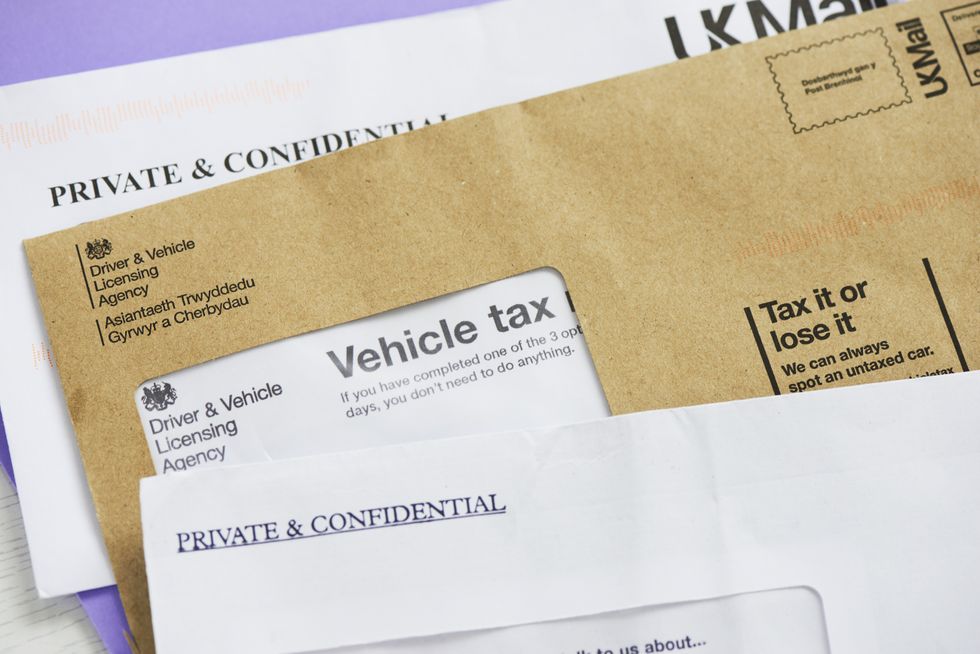Rachel Reeves’ car taxes could hit certain age groups with £5,000 price rises amid new Labour rules
WATCH: Rachel Reeves announce changes to Vehicle Excise Duty rates
Vehicle Excise Duty rates were changed on April 1
Don't Miss
Most Read
Trending on GB News
Drivers have been warned that Rachel Reeves’s car tax hikes will disproportionately impact motorists from certain age groups, with costs rising exponentially.
It comes after a report revealed that women and baby boomers will be hit hardest by the increase in first-year Vehicle Excise Duty (VED) rates that came into effect this month.
A recent study found that if buying habits remain consistent with 2024 figures, women purchasing new cars between April and September could be expected to pay an additional £62.8million in VED compared to last year.
According to reports, this represents £7.4million more than what their male counterparts will pay during the same period.
Do you have a story you'd like to share? Get in touch by emailingmotoring@gbnews.uk

Reports found women and baby boomers would be impacted the worst by the car tax changes
PA/DVLA/X
The research by Go.Compare looked into Department for Transport figures on new private vehicles registered in the first half of the 2024 tax year and applied both old and new first-year VED rates to estimate the impact.
But one of the biggest changes announced by the Chancellor was that cars with zero emissions would now pay VED rates of £10 for the first year.
Vehicles emitting 1-50g/km of CO2 face a £110 charge for petrol/alternative fuel cars and £130 for diesel models. The rates increase sharply for higher-emission vehicles, reaching £5,490 for cars emitting over 255g/km.
Other changes introduced by the Chancellor include the standard rate for cars registered after April 1, 2025, now being £195 for 12 months.
But vehicles with a list price over £40,000 face an additional Expensive Car Supplement rate of £425 for five years from the start of their second licence.
For cars registered between March 2001 and April 2017, the rates vary based on CO2 emissions, ranging from £20 for the lowest band to £760 for the highest.
Light goods vehicles weighing no more than 3,500kg now face a £345 charge for a 12-month period. Motorcycles and tricycles have also seen increases, with rates starting at £26.
Notably, the data showed that one in 10 men own a battery electric or plug-in hybrid electric car, which will be subject to VED payments for the first time, compared to only seven per cent of women.
Meanwhile, 68 per cent of women were found to drive petrol cars compared with 58 per cent of men, with experts explaining that since the tax bands are based on CO2 output, women would be more likely to fall into higher tax brackets and face steeper fees.
The research also found that baby boomers will be the most impacted generation, with an estimated additional tax burden of £40.5million.
Tom Banks, car insurance expert at Go.Compare said: "Unfortunately, some groups will be worse impacted by the rising VED rates than others, which is mainly down to the type of cars they tend to buy.
"Our figures suggest that a higher proportion of men drive low-emission vehicles, meaning more men fall into the lower tax bands. Similarly, a higher proportion of women drive petrol cars, placing more of them in the higher bands."
LATEST DEVELOPMENTS:

A number of crucial car tax changes were introduced on April 1
GETTYBanks offered advice for motorists looking to reduce costs in light of the tax increases.
"To cut these costs, go for a low emissions car at the showroom if you can, as that will place you in the cheaper tax bands," he suggested.
He also recommended comparing car insurance policies to find better deals and driving more economically to reduce fuel costs.








